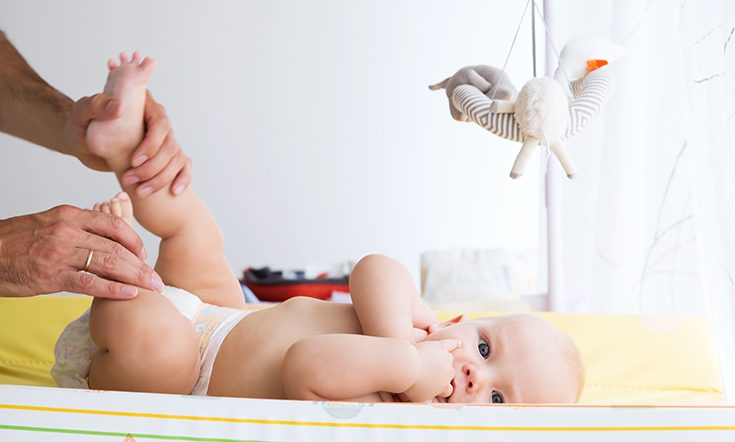
It’s probably one of those subjects which was definitely not talked about at the dinner table or in polite conversation; baby poo! But I’m sure you have now realised that having a baby makes this often the topic of conversation, in any company!
There can be a lot of controversy and confusion over what is typical output for our babies and how do you know what is normal. Let’s start at the very beginning.
When your baby is born the first poo your baby will have is called meconium. This poo is black and sticky in consistency, but not smelly. Sometimes it’s hard to believe how much of this meconium can come out of such a tiny baby!
We used to believe that meconium was sterile and that’s why it didn’t smell but we now know that a newborn’s gut is not sterile and is teaming full of good bacteria, this is known as the microbiome and is really important for all of us. Your baby swallows around 750ml of amniotic fluid every day in the third trimester which helps babies learn to suck and swallow. Meconium is made in part by all of this amniotic fluid bub has swallowed, along with other essentials baby needed whilst growing inside of you.
How Long does a Meconium type poo last?
Meconium type poo usually lasts for about 24 hours. It is a good idea to change your baby’s nappy as soon as you know they have passed this poo, as it can be hard to wipe off due to its incredible stickyiness!
As your baby starts to feed more and more it you will see changes and increases in their poos; and wees.
By around 24-72 hours a baby’s poo changes to a greeny brown colour with a much less sticky appearance.
By 72-96 hours old your baby’s poos will become much more yellow and loose. Imagine English mustard with a little of wholegrain mustard mixed through it and then watered down – this is a typical breastmilk poo! This poo tends to have a type of “yeasty” smell to it.
How Many Poo’s?
Babies will be passing about 1-6+ of these every day and these changes and volume are a good sign that your baby is getting enough breast milk.
In the early weeks of breastfeeding your milk is mostly (90%) made up of whey; this is the liquid portion of the milk containing many immune factors. This is the perfect make up for your newborn’s tummy. From around 6 weeks to 6 months the make-up of your milk is about 80% whey and 20% casein. This gradual increase in casein can cause your baby’s stools become a little thicker over time, more like peanut butter, and baby will likely change their pooing habits to only going a few times per week or less often from this stage. From 6 months of age your baby’s poos will change again, both in colour and aroma due to all the new and interesting foods that are being introduced to their diet alongside your breastmilk.
























